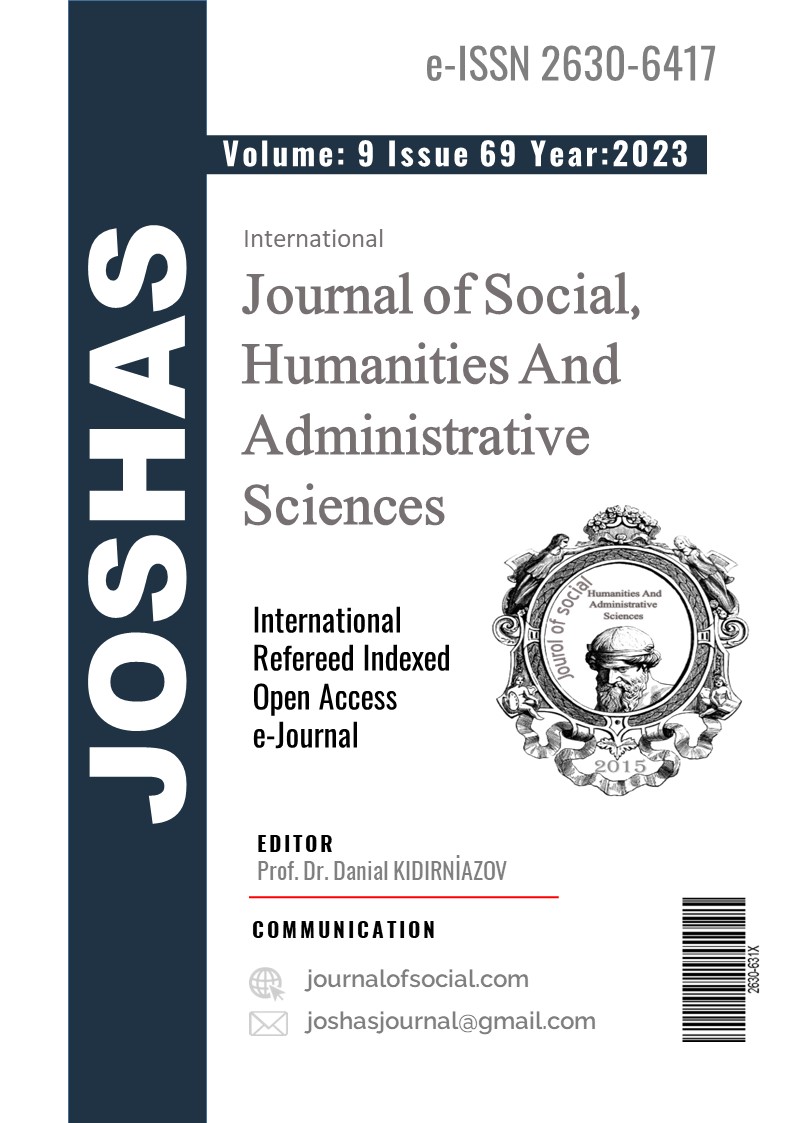Covid-19 Pandemi Sürecinde Türkiye’de İşsizlik Sigortasının Kapsamı ve Bu Kapsamın Genişletilmesine İlişkin Öneriler
Author :
Abstract
Covid -19 olarak tanımlanan bir virüsün dünyada yaygınlaşarak pandemi adını almasıyla artık tüm alanlarda geriye dönülmez değişimleri ve yeni düzenlemeleri zorunlu hale gelirmiştir. Sağlık sistemlerinin yanı sıra ekonomik, sosyal ve kültürel yapılar değişime uğramıştır. Bu yapılar pandemi sürecine uyum sağlanmaya çalışılmıştır. Pandemi sürerken en önemli konu sosyal güvenlik sistemleri olmuştur. Sosyal güvenlik sistemleri pandemi sürecinde karşılaşılan çeşitli sosyal risklere karşı koruma ağı sağlamıştır. Pandemide vatandaşlarına koruma sağlayan ülkeler gibi Türkiye’de oluşturduğu bu ağlarla vatandaşlarına sosyal koruma sağlamıştır. Bu koruma ağlarından en önemlilerinden biri de işsizlik sistemidir. Türkiye’de mevzuatı oluşturulmuş işsizlik sigortası ve bu sigortaya bağlı işsizlik sigortası fonu, çeşitli uygulamalar ile pandemi sürecinde hem finansman hem de sosyal koruma sağlamıştır. İşsizlik sigortasından sağlanan kısa çalışma ödeneği adı altında, pandemi döneminde işine devam edemeyen, işe gidemeyen, işyerini açamayan işyerleri gibi işin sürekliliğini pandemi sürecinde zorlayan nedenlerle işçilere ödemeler sağlanmıştır. Bu ödemeler sadece mevcut işsizlik sigortası kapsamında olan işçi ve işyerleri için geçerli olmuştur. Kapsamında olmayan çalışanlar özellikle bağımsız çalışanlar için bu ödemeler sağlanamamıştır. Oysa Türkiye’de işsizlik sigortasının kapsamının hem diğer çalışan gruplarına hem de bağımsız çalışanlara (esnaf) yönelik kapsamının genişletilmesi sosyal güvenlik sistemimizin daha modern bir duruma gelmesini sağlayacaktır. Bu anlamda çalışma Ahilik Sandığı adı altında oluşturulan taslağın yasalaşması sürecinin incelemiştir. Ayrıca, Ahilik Sandığı’nın oluşması ile mevcut işsizlik sigortasının kapsamının genişletilmesini önermektedir.
Keywords
Abstract
As a virus defined as Covid-19 spread throughout the world and took the name of a pandemic, irreversible changes and new regulations have become mandatory in all areas. In addition to health systems, economic, social and cultural structures have changed. These structures have been tried to adapt to the pandemic process. While the pandemic continued, the most important issue was social security systems. Social security systems have provided a protection network against various social risks encountered during the pandemic process. Like countries that provide protection to their citizens during the pandemic, Turkey has provided social protection to its citizens with these networks it has created. One of the most important of these protection networks is the unemployment system. Unemployment insurance, for which legislation has been established in Turkey, and the unemployment insurance fund linked to this insurance have provided both financing and social protection during the pandemic process with various practices. Under the name of short-time working allowance provided by unemployment insurance, payments were provided to workers who could not continue their work during the pandemic period, could not go to work, could not open their workplaces, etc., for reasons that forced the continuity of work during the pandemic period. These payments were only valid for workers and workplaces covered by existing unemployment insurance. These payments were not provided for employees who were not covered, especially independent workers. However, expanding the scope of unemployment insurance in Turkey to both other employee groups and independent workers (tradesmen) will ensure that our social security system becomes more modern. In this sense, the study examined the process of enactment of the draft created under the name of Ahilik Fund. In addition, it proposes to expand the scope of existing unemployment insurance with the formation of the Ahilik Fund.
